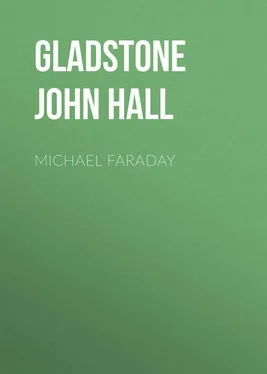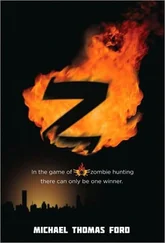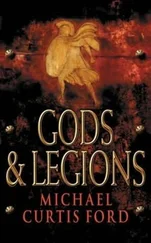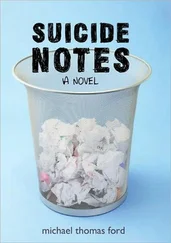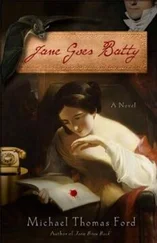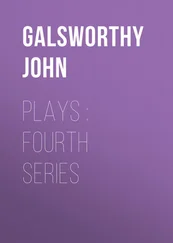John Gladstone - Michael Faraday
Здесь есть возможность читать онлайн «John Gladstone - Michael Faraday» — ознакомительный отрывок электронной книги совершенно бесплатно, а после прочтения отрывка купить полную версию. В некоторых случаях можно слушать аудио, скачать через торрент в формате fb2 и присутствует краткое содержание. Жанр: foreign_antique, foreign_prose, на английском языке. Описание произведения, (предисловие) а так же отзывы посетителей доступны на портале библиотеки ЛибКат.
- Название:Michael Faraday
- Автор:
- Жанр:
- Год:неизвестен
- ISBN:нет данных
- Рейтинг книги:5 / 5. Голосов: 1
-
Избранное:Добавить в избранное
- Отзывы:
-
Ваша оценка:
- 100
- 1
- 2
- 3
- 4
- 5
Michael Faraday: краткое содержание, описание и аннотация
Предлагаем к чтению аннотацию, описание, краткое содержание или предисловие (зависит от того, что написал сам автор книги «Michael Faraday»). Если вы не нашли необходимую информацию о книге — напишите в комментариях, мы постараемся отыскать её.
Michael Faraday — читать онлайн ознакомительный отрывок
Ниже представлен текст книги, разбитый по страницам. Система сохранения места последней прочитанной страницы, позволяет с удобством читать онлайн бесплатно книгу «Michael Faraday», без необходимости каждый раз заново искать на чём Вы остановились. Поставьте закладку, и сможете в любой момент перейти на страницу, на которой закончили чтение.
Интервал:
Закладка:
In regard to the lectureship at Woolwich, Mr. Abel, his successor, writes thus: – "Faraday appears to have enjoyed his weekly trips to Woolwich, which he continued for so many years, as a source of relaxation. He was in the habit of going to Woolwich in the afternoon or evening preceding his lecture at the Military Academy, then preparing at once for his experiments, and afterwards generally taking a country ramble. The lecture was delivered early the following morning. No man was so respected, admired, and beloved as a teacher at the Military Academy in former days as Faraday. Many are the little incidents which have been communicated to me by his pupils illustrative of his charms as a lecturer, and of his kindly feelings for the youths to whom he endeavoured to impart a taste for, if not a knowledge of, science. But for some not ill-meant, though scarcely judicious, proposal to dictate modifications in his course of instruction, Faraday would probably have continued for some years longer to lecture at Woolwich. In May 1852, soon after I had been appointed his successor, Faraday wrote to me requesting the return of some tubes of condensed gases which he left at the Academy. This letter ends thus: – 'I hope you feel yourself happy and comfortable in your arrangements at the Academy, and have cause to be pleased with the change. I was ever very kindly received there, and that portion of regret which one must ever feel in concluding a long engagement would be in some degree lessened with me by hearing that you had reason to be satisfied with your duties and their acceptance. – Ever very truly yours, M. Faraday.'"
For year after year the life of Faraday afforded no adventure and little variety, only an ever-growing skill in his favourite pursuit, higher and higher success, and ever-widening fame. But simple as were his mind and his habits, no one picture can present him as the complete man; we must try to make sketches from various points of view, and leave it to the reader's imagination to combine them.
Let us watch him on an ordinary day. After eight hours' sleep, he rises in time to breakfast at eight o'clock, goes round the Institution to see that all is in order, and descends into the laboratory, puts on a large white apron, the stains and holes in which tell of previous service, and is busy among his pieces of apparatus. The faithful Anderson, an old soldier, who always did exactly what he was told, and nothing more, 5 5 The following anecdote has been sent me on the authority of Mr. Benjamin Abbott: – "Sergeant Anderson was engaged to attend to the furnaces in Mr. Faraday's researches on optical glass in 1828, and was chosen simply because of the habits of strict obedience his military training had given him. His duty was to keep the furnaces always at the same heat, and the water in the ashpit always at the same level. In the evening he was released, but one night Faraday forgot to tell Anderson he could go home, and early next morning he found his faithful servant still stoking the glowing furnace, as he had been doing all night long." A more probable and better authenticated version of this story is that after nightfall Anderson went upstairs to Faraday, who was already in bed, to inquire if he was to remain still on duty.
is waiting upon him; and as thought flashes after thought through his eager – perhaps impatient – brain, he twists his wires into new shapes, and re-arranges his magnets and batteries. Then some conclusion is arrived at which lights up his face with a gleam of satisfaction, but the next minute a doubt comes across that expressive brow – may the results not be due to something else yet imperfectly conceived? – and a new experiment must be devised to answer that. In the meantime perhaps one of his little nieces has been left in his charge. She sits as quiet as a mouse with her needlework; but now and then he gives her a nod, or a kind word, and throwing a little piece of potassium on to a basin of water for her amusement, he shows her the metal bursting into purple flame, floating about in fiery eddies, and the crack of the fused globule of potash at the end. Presently there is handed to him the card of some foreign savant , who makes his pilgrimage to the famous Institution and its presiding genius; he puts down his last result on a slate, comes upstairs, and, disregarding the interruption, chats with his visitor with all cordiality and openness. Then to work again till dinner-time, at half-past two. In the afternoon he retires to his study with its plain furniture and the india-rubber tree in the window, and writes a letter full of affection to some friend, after which he goes off to the council meeting of one of the learned bodies. Then back again to the laboratory, but as evening approaches he goes upstairs to his wife and niece, and then there is a game at bagatelle or acting charades; and afterwards he will read aloud from Shakspeare or Macaulay till it is time for supper and the simple family worship which now is not liable to the interruptions that generally prevent it in the morning. And so the day closes.
Or if it be a fine summer evening, he takes a stroll with his wife and the little girl to the Zoological Gardens, and looks at all the new arrivals, but especially the monkeys, laughing at their tricks till the tears run down his cheeks.
But should it be a Friday evening, Faraday's place is in the library and theatre of the Institution, to see that all is right and ready, to say an encouraging word to the lecturer, and to welcome his friends as they arrive; then taking his seat on the front bench near the right hand of the speaker, he listens with an animated countenance to his story, 6 6 One evening, when the Rev. A. J. D'Orsey was lecturing "On the Study of the English Language," he mentioned as a common vulgarism that of using "don't" in the third person singular, as "He don't pay his debts." Faraday exclaimed aloud, "That's very wrong."
sometimes bending forwards, and scarcely capable of keeping his fingers off the apparatus – not at all able if anything seems to be going wrong; when the discourse is over, a warm shake of the hand, with "Thank you for a pleasant hour," and "Good night" to those around him, and upstairs with his wife and some particularly congenial friends to supper. On the dining-table is abundance of good fare and good wine, and around it flows a pleasant stream of lively and intellectual conversation.
But suppose it is his own night to lecture. The subject has been carefully considered, an outline of his discourse has been written on a sheet of foolscap, with all the experiments marked and numbered, and during the morning everything has been arranged on the table in such order that his memory is assisted by it; the audience now pours in, and soon occupies all the seats, so that late comers must be content with sitting on the stairs or standing in the gangways, or at the back of the gallery. Faraday enters, and placing himself in the centre of the horse-shoe table, perfect master of himself, his apparatus, and his audience, commences a discourse which few that are present will ever forget. Here is a picture by Lady Pollock: – "It was an irresistible eloquence, which compelled attention and insisted upon sympathy. It waked the young from their visions, and the old from their dreams. There was a gleaming in his eyes which no painter could copy, and which no poet could describe. Their radiance seemed to send a strange light into the very heart of his congregation; and when he spoke, it was felt that the stir of his voice and the fervour of his words could belong only to the owner of those kindling eyes. His thought was rapid, and made itself a way in new phrases – if it found none ready made – as the mountaineer cuts steps in the most hazardous ascent with his own axe. His enthusiasm sometimes carried him to the point of ecstasy when he expatiated on the beauties of Nature, and when he lifted the veil from her deep mysteries. His body then took motion from his mind; his hair streamed out from his head; his hands were full of nervous action; his light, lithe body seemed to quiver with its eager life. His audience took fire with him, and every face was flushed. Whatever might be the after-thought or the after-pursuit, each hearer for the time shared his zeal and his delight." 7 7 The St. Paul's Magazine , June 1870.
Интервал:
Закладка:
Похожие книги на «Michael Faraday»
Представляем Вашему вниманию похожие книги на «Michael Faraday» списком для выбора. Мы отобрали схожую по названию и смыслу литературу в надежде предоставить читателям больше вариантов отыскать новые, интересные, ещё непрочитанные произведения.
Обсуждение, отзывы о книге «Michael Faraday» и просто собственные мнения читателей. Оставьте ваши комментарии, напишите, что Вы думаете о произведении, его смысле или главных героях. Укажите что конкретно понравилось, а что нет, и почему Вы так считаете.
